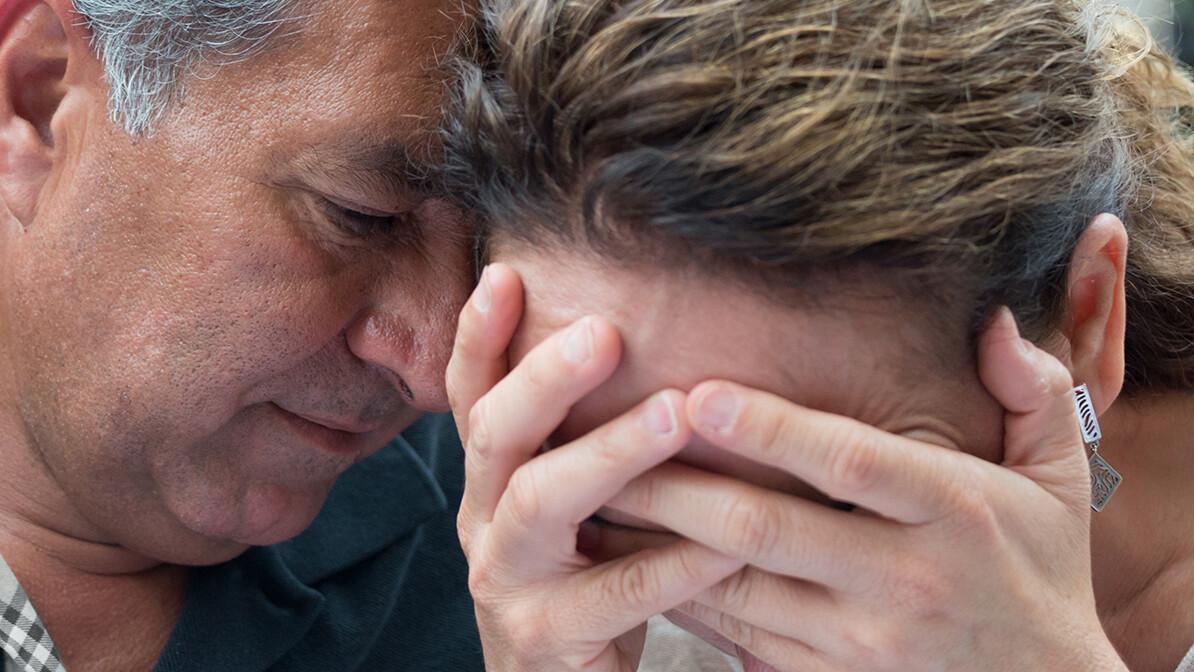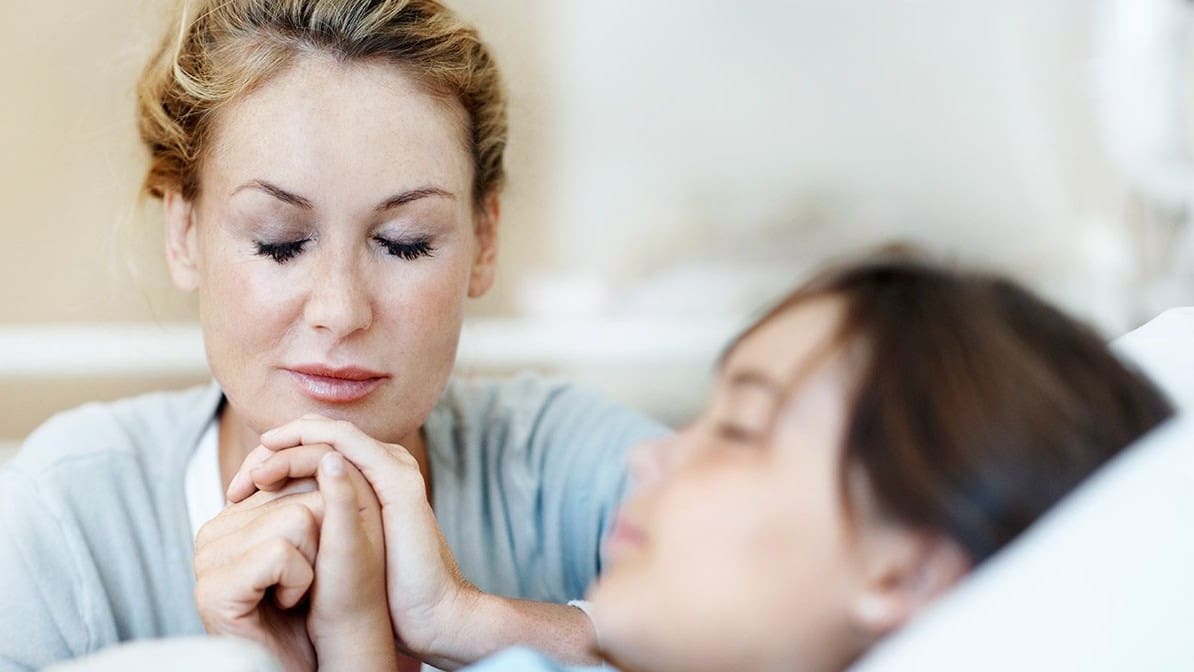
A Spoonful of Courage for the Sick and Suffering, Part 1
CVB: So you are the best guy on the worst day. I understand because I used to be a hospital chaplain. So when everyone else was running out, you and I were running in.
Dr. Charles Page: Absolutely. When the hospital chaplain and I have to get together, it’s usually not good news. I’m a guy you really don’t ever want to see, but hopefully I’ll make a difference. I don’t really meet people at the grocery store or at church. It’s always in some dire circumstance. But it’s definitely a ministry and I’ve learned a lot from my patients.
CVB: Tell us a little bit about your background.
Charles: I’m a general surgeon and I grew up and practice in a small town in East Texas. So I carry a lot of different hats. I trained in a big university in Houston, but I just really enjoy being close to my patients and doing a wide variety of surgeries. You never know what a day is going to bring forth in a small town.
CVB: That’s so true.
Charles: It also has given me an opportunity to get a glimpse of how other people respond in their difficult circumstances and in their sickness. I see such a wide variety of things.
CVB: You’ve written this book, A Spoon Full of Courage for the Sick and Suffering. You talk about transforming your greatest challenges into your biggest blessings. What led you to write this book?
Charles: Part of it came from listening to my patients and learning from them. But I did have a life event myself where my building burned down in a freak electrical accident. As I was thinking about what was going to happen to me, people began to tell me their stories. I was still on call and I still had to work and I realized how much those stories encouraged me. We live in the information age, but really what we need is inspiration.
One guy said, “Doc, you’re not going to believe this, but my house burned down. My wife was an invalid and I had been her caretaker for years. I couldn’t get her out of the house. And I had to watch that house burn with my wife inside.” When you hear a story like that, there is no excuse for whatever pity party you’re making for yourself. I realized I didn’t have it as bad as other people. That’s one of the focuses of this work.
We have a friend who’s just been diagnosed with lung cancer. She goes down to MD Anderson every day, sits in the waiting room, and talks to people. As she hears their stories, it changes her perspective and her attitude. That’s the whole idea of these stories, to help people begin to look upward instead of inward, and then begin to focus outward.
So often we’re thinking about ourselves and we’re asking all those questions – “Why me? Why God? Why now?” There’s nothing wrong with asking those questions, but ultimately we have to look to God’s promises. So often our feelings overwhelm us and we feel out of control. We feel alone. We feel this whole gamut of emotions when we’re going through a crisis. This book was written to help people change their focus and look more at the facts.
People talk about facts, and then our faith, and then our feelings. So we focus on the facts and on the truth that we’re not alone in the crisis. God’s promise is that He will never leave us or forsake us. And we have the Holy Spirit living within us. Knowing those things makes all the difference.
We may feel out of control, but guess what, we never were in control to begin with. But God’s in control and He holds our hand. He’s going to walk us through whatever we face. It doesn’t always mean that He’s going to deliver us from our adversity, but He gives us the power to get us through that. I’m a firm believer that everything we need has been given to us based on the finished work of Christ.
CVB: Tell me about your faith journey. As a hospital chaplain, I met physicians and surgeons who had a relationship with the Lord, and then I met some who didn’t and were almost opposed to a chaplain being there. Were you a believer as you went through med school or was it afterwards?
Charles: I became a believer at 16 years of age. I came from a nominally Christian family and my parents never went to school. We had no experience in medicine or anything, but God called me. I started out on the journey and went to medical school and at that time, they never talked about a holistic approach to medicine and the difference that faith can make. It was kind of taboo to ever discuss spiritual things with people. What I’ve learned since is that there’s a lot of literature out there that really supports praying with your patients. One study shows that up to 60 percent of patients want their doctor to pray with them. About the same number of people want their doctors to talk to them about spiritual things.
We’re not there to be paternalistic, but we are there to serve them in the name of Jesus. It’s something that I always try to be open with.
Last week I was called after hours to put a tracheotomy in a lady who was about to be placed on a ventilator. She was 40 years old and just going downhill. I went in and things were not going right. I was supposed to be at home with my wife and late to see some friends, so I kind of had a bad attitude. When I finished, the only words she said to me were, “Doctor, would you pray for me?” Well, that was an attitude adjustment. It’s funny how that happens. We get into our own agenda, and then there are these little God-ordained appointments that we have with people. That lady passed on and I was the last person to be able to minister to her in her time of need.
It is important that we’re there, even though we’re not perfect. We’re like Jonah, who was not a perfect servant. Sometimes we have the wrong attitude. But if we will listen to our patients and listen to God in the healthcare arena, there are opportunities there. They really tried to discourage any kind of discussion spiritual things. But as a physician or a hospital chaplain, we need to use everything in our armamentarium of tools to help people to get people from point A to point B. If praying with a person will help them, then we need to not be afraid to do that.
CVB: So you’re in a special position to minister to a lot of hurting people.
Charles: Yes. Every day I see a lot of patients and we’re having a lot of interactions, so the challenge is determining who are the people that God would have me minister to today? It’s a challenge and that’s why we have to be on our toes. I was not expecting that lady to ask me to pray for her, and I definitely was not in the right attitude. We need to be aware. We need to be listening to God.
…
Order your copy of A Spoonful of Courage for the Sick and Suffering
Trending Now
Sign up today for your Inspiration Today Daily Newsletter
Supercharge your faith and ignite your spirit. Find hope in God’s word. Receive your Inspiration Today newsletter now!
Dr. Craig von Buseck
Dr. Craig von Buseck is an award-winning author. Learn more at vonbuseck.com
Related Articles
April 15, 2024
I Want to Live
What does God do with a good ol’ southern boy taken captive by the demon of alcohol? He meets him…
April 9, 2024
Pregnancy and Infant Loss: Helping Grieving Families Part 1
When you consider that one in four American women experience the grief of…
April 8, 2024
Prayers for Healing
An unexpected troublesome medical diagnosis, a strained relationship with family or friend, and…
Next Steps To Strengthen Your Walk
Submit A Prayer Request
We are here for you. Simply click on the button below to reach us by form, email or phone. Together we will lift our hearts and voices with you in prayer.
Partner WIth Us
Sow a seed of faith today! Your generous gift will help us impact others for Christ through our global salvation outreach and other faith based initiatives.
Inspiration TV
Watch Christian content from your favorite pastors, christian movies, TV shows and more.






